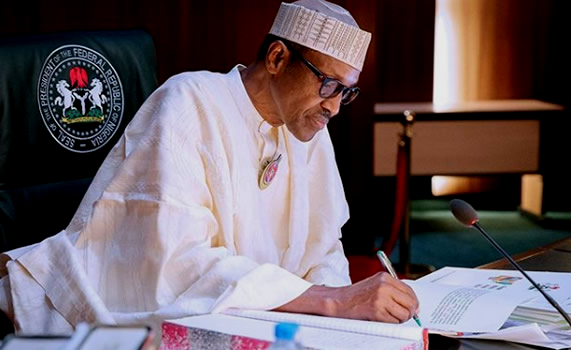The Chief Executive Officer (CEO), Espera Global Corporation, Dr Glenn Prince-Abbi, says a lot needs to be done to radically improve the quantum of revenue generation in the country.
Prince-Abbi, disclosed this in an interview with the News Agency of Nigeria (NAN) on Sunday.
He was reacting to the N16.39 trillion 2022 appropriation bill presented by the President Muhammadu Buhari on Oct. 7.
The CEO urged the Federal Government to ensure proper supervision of revenue-generating Ministires, Departments and Agencies (MDAs) to boost revenue.
Prince-Abbi said this was necessary to ensure performance of 2022 budget, if the proposals became law..
He said that with proper monitoring, the Federal Government could extract huge value in the area of remittances from revenue generating MDAs.
“A lot needs to be done to radically improve the quantum of revenue generation. As a matter of fact, statistics show that revenue generation in Nigeria is one of the lowest in the world, vis a vis the size of the Nigerian economy.
“To achieve budget performance, one crucial aspect in which the Federal Government can extract huge value is the area of remittances from revenue generating MDAs.
“I think this is a major area where the Federal Government can extract value in unprecedented ways.
“There should be a complete transformation and turn-around in the quality of supervision by the Federal Government on its revenue-generating MDAs.
“My recommendation is that once the 2022 Appropriation Bill is passed into law, the Federal Government must initiate definite strategy sessions with its revenue-generating MDAs,” Prince-Abbi said.
According to him, revenue generating agencies must be made to realise with clarity that the game-changer in terms of planned government spending depends on them.
“For a budget with a lot of dependency on borrowings, I am troubled that there are still lots of outstanding remittances of some N2.65 trillion (equivalent of $6.48 billion) from various entities such as 77 defaulting oil companies.
“This exposure is completely untenable, indefensible and unacceptable.
“These outstanding remittances provide a huge unexplored window to be tapped to buoy up the revenue position of the Federal Government in 2022 to support the financing of the budget.
“I understand the President has given approval for these companies to be closely tracked and marked and made to pay all their outstanding remittances arising from petroleum profit tax, company income tax, education tax, VAT, withholding tax, royalty and concession on rentals.
“Government is forced to borrow to fund the budget and yet there are such huge outstanding remittances.
“These are challenging times and the Federal Government must be tougher on all parties to achieve the performance of the “Budget of Economic Growth and Sustainability” which the 2022 budget is called,” he added.
Prince-Abbi said there should be no sacred cows in recovering these monies.
“Clear and short timelines must be given to them to make good on these payments – and sanctions should not be spared in confronting these defaulters, should they show lethargy in complying,” he said.
On assumptions of the budget, Prince-Abbi said that the oil price benchmark of $57 per barrel for the oil revenues side of financing the 2022 budget was realistic and defensible.
“This is because at the moment, oil price has gone beyond the $80 per barrel ceiling,” he noted.
“President Buhari has presented a record N16.39 trillion ($39.8 billion) budget for 2022.
“In the process, the President actually confirmed a previously published 2022 GDP growth forecast of 4.2% and an inflation projection of 13%.
“In my view, this growth forecast is achievable, just as I believe that the inflation of 13 per cent can actually be improved upon.
“This is because the main culprit in Nigeria’s inflationary trends is food prices, and this is adding to the spiraling poverty and food insecurity,” he said.





